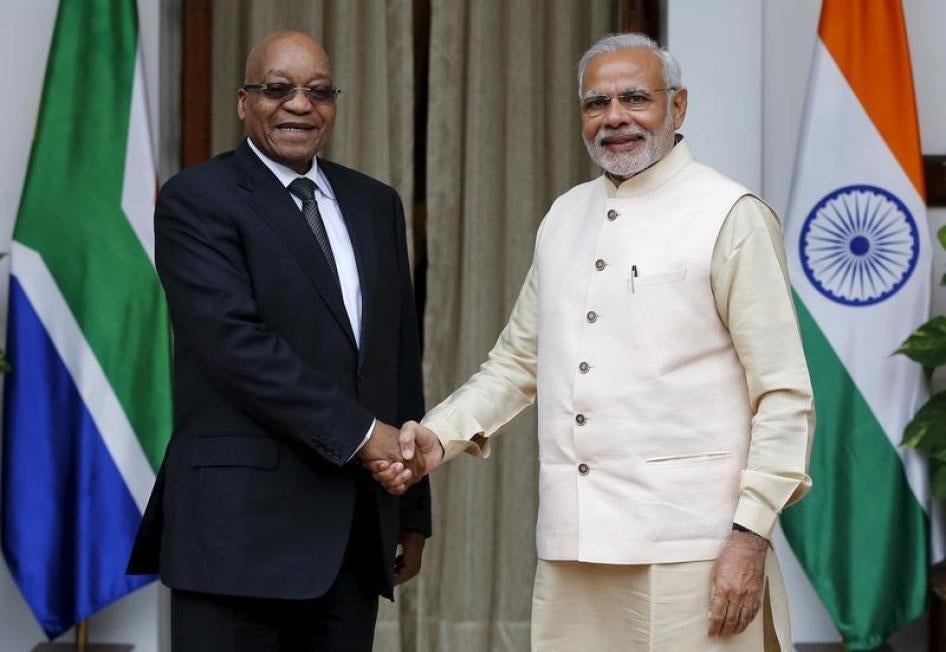India’s Prime Minister Narendra Modi arrives in South Africa Friday to meet with President Jacob Zuma to discuss cooperation between their two countries. One hopes that, among other topics, they find time to discuss human rights.
After all, both South Africa and India have been clear that they want to take on a leadership role in global affairs. What better way to strengthen their claims for a place among world leaders than by making human rights central to their international relations?
Both have much to improve in the rights arena. Recently, both countries have disappointed when they failed to stand up for human rights at the United Nations. Last week, both countries voted against a UN resolution on the protection of human rights on the Internet. South Africa and India also both abstained on a key vote at the UN Human Rights Council to appoint an independent expert on sexual orientation and gender identity. South Africa’s abstention was particularly surprising, given the country’s strong constitutional protections and domestic laws around sexual orientation and gender identity.
Zuma should encourage the Modi government to protect India’s religious minorities from violence, uphold freedom of speech, stop harassment of nongovernmental organizations, and protect women and girls against sexual harassment, rape, and murder. India should also be playing a leading role in promoting human rights at a regional level in Bangladesh, Sri Lanka, Burma, and Afghanistan.
Modi, of course, should be raising India’s concerns with South Africa’s human rights record. Police brutality and violence against women are persistent problems. Concerns remain about the treatment of migrants, refugees, and asylum seekers, and South Africa has done little to address the root causes of xenophobic violence. South Africa could also do more to promote human rights in its region, including in its neighbor, Zimbabwe.
It’s time for Zuma and Modi to show true signs of rights-respecting leadership by championing human rights not only in their own countries but in their regions and globally.








